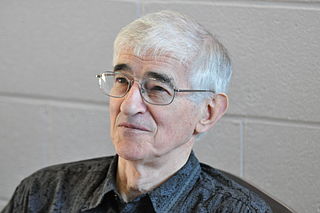A Quote by Cory Booker
My faith tradition is love your enemies. It's not complicated for me, if I aspire to be who I say I am. I am a Christian American. Literally written in the ideals of my faith is to love those who hate you. I don't see why that's so shocking.
Related Quotes
If you abide in the love of Christ, rooted in the faith, you will encounter, even amid setbacks and suffering, the source of true happiness and joy. Faith does not run counter to your highest ideals; on the contrary, it elevates and perfects those ideals. Dear young people, do not be satisfied with anything less than Truth and Love, do not be content with anything less than Christ.
Faith, Hope & Love. Faith is directed towards God, love towards others (both within the Christian fellowship and beyond it) and hope towards the future, in particular, the glorious coming of our Lord Jesus Christ. Similarly, faith rests of the past; love works in the present; hope looks to the future. Every Christian without exception is a believer, a lover and a hoper. Faith, hope and love are three sure evidences of regeneration by the Holy Spirit.
If somebody says, you know, to love your enemies, you could say, 'Well I'm going to love them to death.' We've done that sort of stuff so it can be done. But if you really start with love your enemies, and if you look at the tradition of the first Christian centuries, nobody ever seems to suggest well if they come after us to persecute us, is it alright to kill a few? Defensively, of course.
I think faith is the small mustard seed of opportunities every day. For example, 'Am I going to love this person? Am I going to share my faith with this person? Am I going to pray that little prayer?' It really is a daily thing where you seize those little mustard seed opportunities and then see what God does.
A living faith is always on trial; we call it faith for that reason. When I read in some alarmist book that the Christian faith is now on trial, or "at the crossroads," my impulse is to answer, Why Not? Does anybody know a time when the Christian faith was not on trial, or when the Christian life was a simple walkover, with neither principalities nor powers to dispute its advance?
There is no such thing as a faithless person; we either have faith in the power of love, or faith in the power of fear. For faith is an aspect of consciousness. Have faith in love, and fear will lose its power over you. Have faith in forgiveness, and your self-hatred will fall away. Have faith in miracles, and they will come to you.
But I say to you, the Lord says, love your enemies, do good to those who hate you, pray for those who persecute you. Why did he command these things? So that he might free you from hatred, sadness, anger and grudges, and might grant you the greatest possession of all, perfect love, which is impossible to possess except by the one who loves all equally in imitation of God.
I am free, you see," she said, "to love or to withhold love. Love and dependence need no longer be the same thing to me. I am free to love. that is why I love you and it is the way I love you. If you have come here, Kit, because you think you owe me something, because you believe I might crumble without your protection, then go away again with my blessing and find happiness with someone else." "I love you," he said again.
A nominal Christian often discovers in suffering that his faith has been in his church, denomination, or family tradition, but not Christ. As he faces evil and suffering, he may lose his faith. But that’s actually a good thing. I have sympathy for people who lose their faith, but any faith lost in suffering wasn’t a faith worth keeping.
Jesus doesn't say, "The religion founded in my name is the way, the truth, and the life, [and] what people say about me is the way." "Our way of worship, the Christian structure, is not the way," [he would say,] "I am. I am. If you want to know what life is all about, what it's supposed to be, where it's supposed to go, where it's supposed to derive its strength from, don't look at anything people say about me. Don't look at the faith that's been created. Look at my life, which is a life ultimately of sacrificial love."
Christian faith is exclusivistic. Christian faith lays claim upon our lives. The sanctity of life, what we do with a life, is very definitive in the Christian faith, what we do with sexuality, what we do with marriage, all of the fundamental questions of life have points of reference for answers, and people just have an aversion for that. That I think is the biggest reason they feel hostile towards the Christian faith.


































